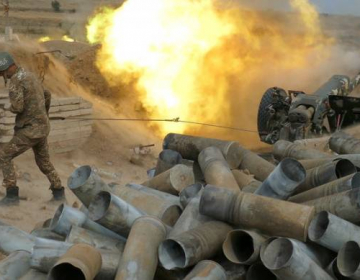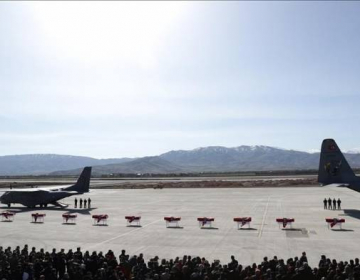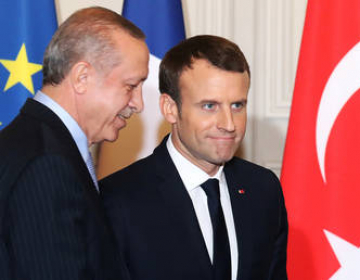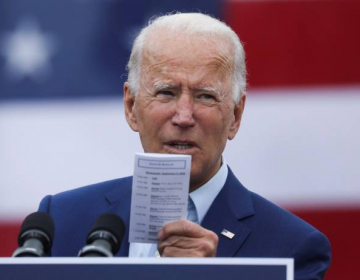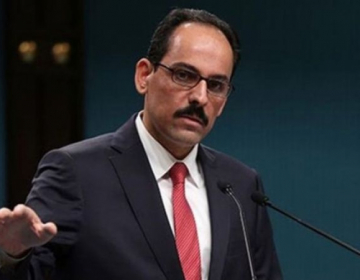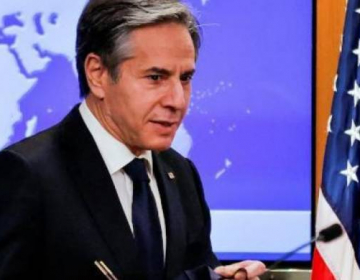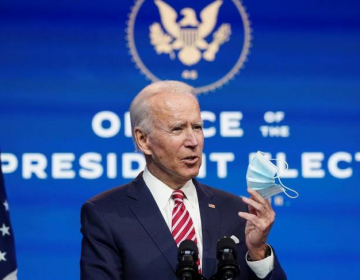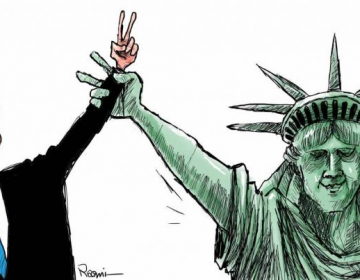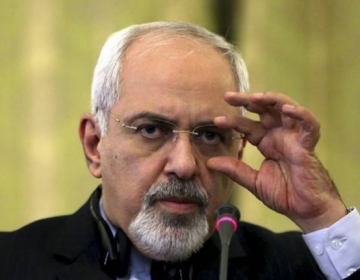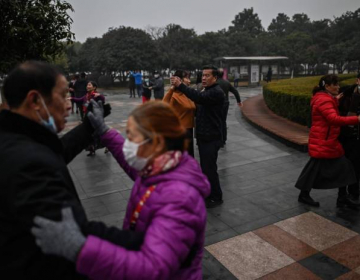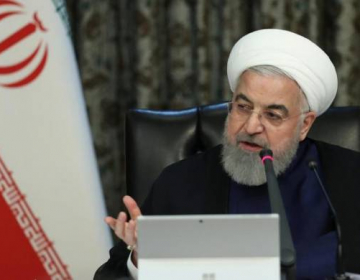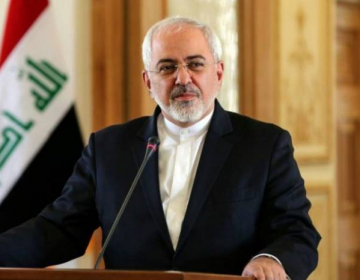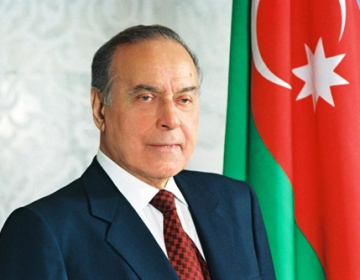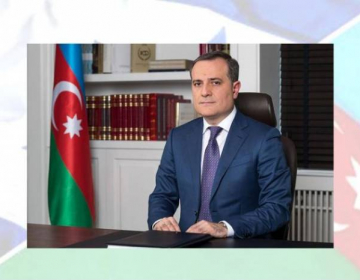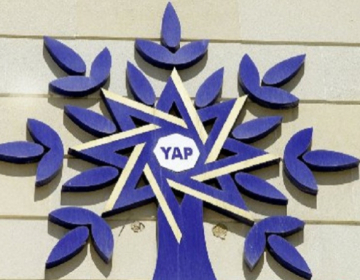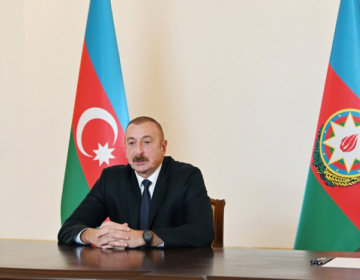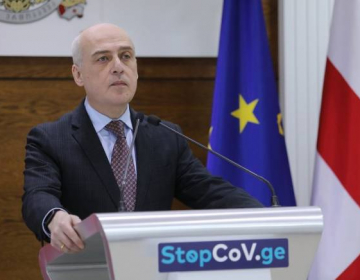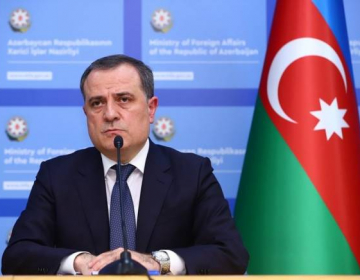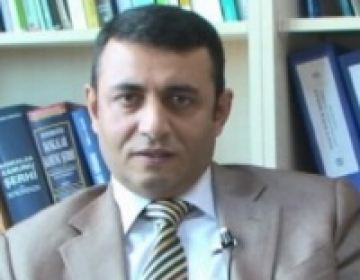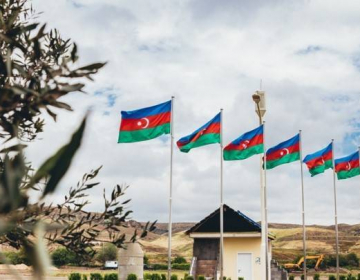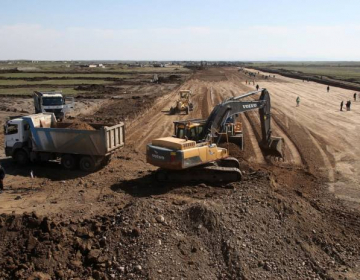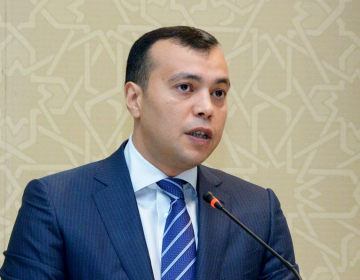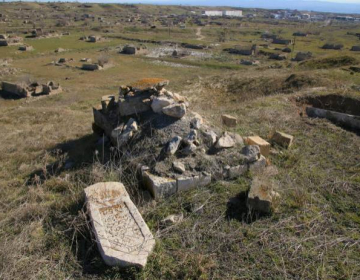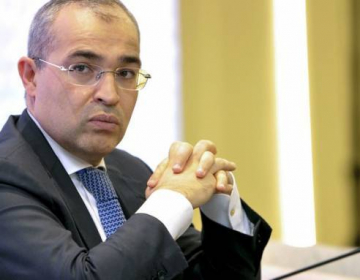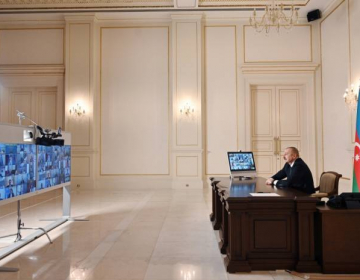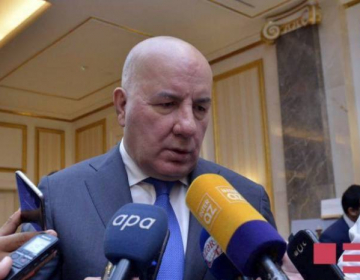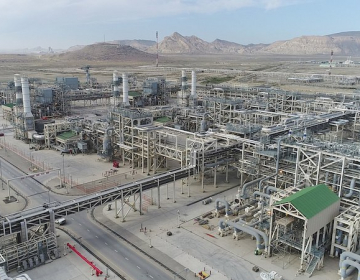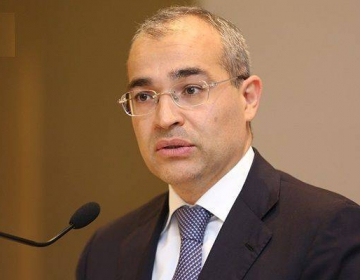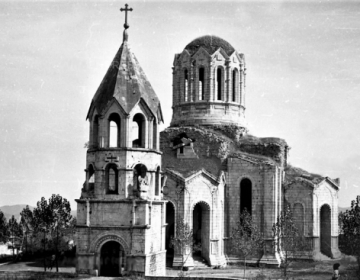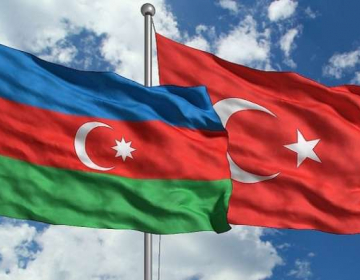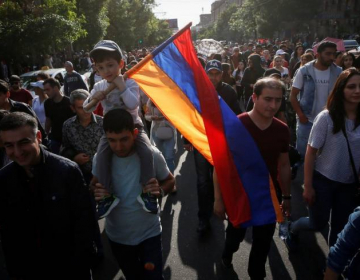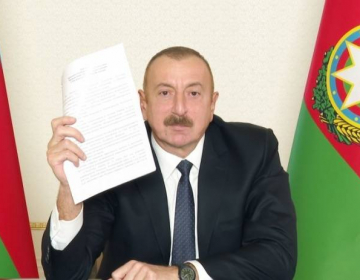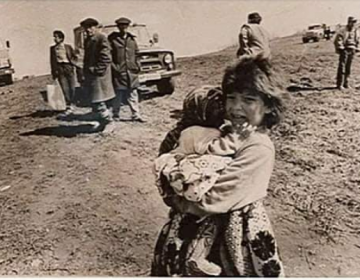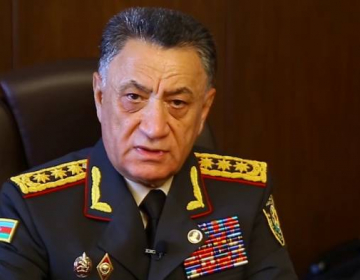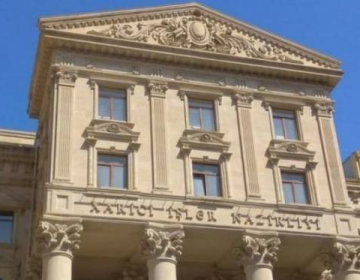It is safe to say that the main controversy over the current doctrine and practice of "state privatization shares" and "state privatization checks" stems from the legal limit on the circulation of "state privatization checks", in other words, their withdrawal from circulation and the prohibition of their use as a means of payment.
Thus, the restriction of the circulation period of "state privatization checks" and the ban on their use as a means of payment have led to the following questions:
1. Are “state privatization checks” and “state privatization shares” the same legal concepts or different ones?
2. Did the withdrawal of “state privatization vouchers” from circulation and the ban on their use as a means of payment lead to the termination of the property right granted to every citizen of the Republic of Azerbaijan over “state privatization shares”?
3. Has the ban on the withdrawal of "state privatization checks" and their use as a means of payment been implemented in accordance with the law?
Why was the term of circulation and use of “state privatization checks” as a means of payment limited by the legislation?
4. The article analyzes these questions from the legal point of view, taking into account the legislation of the Republic of Azerbaijan as a whole.
1. Legal analysis of whether “state privatization checks” and “state privatization shares” are the same or different legal concepts.
According to the results of this legal analysis, "state privatization checks" and "state privatization shares" are two different legal concepts.
Thus, we all know that the "share of state privatization" is regulated by the Law of the Republic of Azerbaijan "On privatization of state property in the Republic of Azerbaijan", adopted for the first time in the legislation of the Republic in 1993.
Article 18 of the same law defines "privatization share" and states that "this share is a part of the privatized state property gratuitously given to every citizen of the Republic of Azerbaijan."
Article 10 of the same law states that "the amount of privatization share, the terms of its issuance and the rules of its use are determined by the State Privatization Program."
The first State Program on privatization of state property in our republic was adopted on September 29, 1995.
This program is the famous “I State Program” approved by the Law of September 29, 1995 [5] on the approval of the “State Program of Privatization of State Property in the Republic of Azerbaijan in 1995-1998” signed by our National Leader Heydar Aliyev (hereinafter “ I State Program ”).
If we take into account the requirements of the "I State Program", we can see that the Great Leader made a special effort to give gratuitously the property of the Republic, which gained independence from the socialist regime, to the real owners, to people (citizens) of the Republic of Azerbaijan.
It is easy to say this, taking into account the requirements of Section 3 of the First State Program, entitled "State Privatization Share", signed by the Great Leader, and other normative legal acts signed by him.
It should be noted that by legally analyzing Section 3 of the First State Program, entitled "State Privatization Share", we could easily say that "state privatization checks" and "state privatization shares" are different legal concepts. Thus, the second paragraph of Section 3 of the First State Program reads:
Privatization share is a gratuitous part of the privatized state property given to each citizen of the Republic of Azerbaijan (paragraph 2).
This paragraph 2 shows that the state of the Republic of Azerbaijan and its head of state, the Great Leader, gratuitously transferred part of the state property (property) privatized through the state privatization share and this normative legal act to the citizens of the Republic of Azerbaijan.
According to the generally accepted norm of law, if a person transfers a part of his property to another person as conditionally, so and unconditionally, he or she establishes the right of ownership to this part
In this case, we can say that "state privatization shares" is a document confirming the right of ownership to each citizen of the Republic of Azerbaijan on the part of the property (property share) transferred free of charge from the privatized state property.
In other words, with the adoption of the Law of 1993 and the First State Program of 1995, the property right of every Azerbaijani citizen over the “state privatization share” was officially confirmed.
The property right is one of the basic human rights and it is protected by the Constitution of the Republic of Azerbaijan.
Property may be taken from a person, with the exception of a donation, only with his consent. Article 29, paragraph IV of the Constitution states that “No one may be deprived of his property without a court decision. Full confiscation of property is not allowed. Expropriation of property for state needs may be allowed only on condition of fair payment of its value in advance.
Again, paragraph 3 of Section 3 of the First State Program, entitled "State Privatization Share", states:
Privatization share is given to citizens of the republic to buy shares of privatized state enterprises and investment funds. A share (check) may be sold, pledged, bequeathed to banks, and alienated in another form provided for by the current legislation of the Republic of Azerbaijan (paragraph 3).
It is clear from the requirement of this paragraph 3 that the First State Program, unlike the 1993 Law, increased the usability of "state privatization shares" and accepted that it could be sold, pledged or otherwise alienated.
It is clear that the First State Program does not regulate the circulation of "state privatization shares".
It is impossible not to be amazed at the far-sighted legal policy of the Great Leader when the following norms are analyzed.
Thus, the First State Program did not regulate the possibility of "state privatization shares" in circulation in accordance with the right, reasonable and legislative (legal) technology. Thus, the concept of circulation is a legal concept accepted for securities all over the world. “ State privatization shares ”are not securities and cannot be traded, but can be sold, pledged or otherwise alienated as other property rights.
It is the third paragraph of Section 3 of the First State Program, entitled "State Privatization Share", regulates that "state privatization shares" can not be traded, but can be sold or otherwise alienated.
Again, paragraph 4 of Section 3 of the First State Program, entitled "State Privatization Share", states:
State privatization share - anonymous, cash value (to the submitter): in paper form, consists of 4 (four) checks. The moment of issuance of the check included in the privatization share has the same value (paragraph 4).
It is also clear from this norm that the First State Program, under the authority given to it by the 1993 Law, for the first time closed the "state privatization share" to a security check and stated that all those checks had the same value at the time of issuance to ensure equality. .
This norm also states that 1 State privatization share is equal to 4 Check.
In short, it is clear from this norm that "state privatization share" and "state privatization voucher" are two separate legal concepts with different characteristics. That is, the legislation distinguished these two concepts from each other with the following main differences:
If the “state privatization voucher” is a security, the “state privatization share” is not a security, the property given to each citizen of the Republic of Azerbaijan free of charge from the state property is a share (property).
The legal basis for the issuance of a “state privatization voucher” is a “state privatization share” issued to every citizen of Azerbaijan from state property. This is stated in the 4th paragraph of the 3rd section of the I State Program.
It is clear that without the "state privatization share", the "state privatization voucher" could not be issued. It is a well-known fact that a security must prove any property right. Otherwise it will be invalid. For example, a share issued by a joint-stock company is a security that confirms that the person is a partner in that joint-stock company and that part of the common property of that joint-stock company belongs to him. If a share is issued in the absence of such a joint stock company, that share does not confirm any ownership right, just as it does not confirm that the owner is a partner in any joint stock company. It is therefore considered invalid.
"State privatization voucher" can be circulated because it is a security, its circulation period can be limited to a certain period, it can be withdrawn from circulation in accordance with the legislation. However, "state privatization share" cannot circulate. Because the concept of circulation is a concept specific to securities. Consequently, it is impossible to limit the period of circulation of the "state privatization share".
Based on all this, we can say that the circulation period of securities, including "state privatization checks" may be limited, but this does not lead to the termination of the "state privatization share" (property rights), the basis for its issuance.
Paragraph 5 of Section 3 of the same State Program, entitled "State Privatization Share", states:
32,000,000 (thirty-two million) state privatization vouchers with a circulation period of three years are issued (paragraph 5).
It is clear from this norm that 32,000,000 checks with a circulation period of 3 years were issued in order for each citizen of the Republic of Azerbaijan to be able to receive their gratuitous share of the privatized state property, which is equal to 4 “check leaves” and 1 “state privatization share”.. Let's not forget that in 1995 Azerbaijan Republic had a population of 8,000,000, which means 8,000,000 "state privatization shares."
All this once again confirms that "state privatization checks" and "state privatization shares" are different legal concepts. Of these two concepts, for the first time in the legislation, the concept of "state privatization shares", was regulated and later these shares were linked to "state privatization checks".
2. Legal analysis of whether the withdrawal of “state privatization checks” from circulation has led to the termination of the property right granted to each citizen of the Republic of Azerbaijan on “state privatization shares”.
We believe that the withdrawal of "state privatization checks" can not lead to the termination of the property rights granted to every citizen of the Republic of Azerbaijan on "state privatization shares".
Firstly is that "state privatization checks" and "state privatization share" are two separate legal concepts that have different characteristics. Thus, if the “state privatization voucher” is a security, the “state privatization share” is not a security, but a property share (property) transferred to each citizen of the Republic of Azerbaijan free of charge from the state property.
The legal basis for issuing a "state privatization voucher" is the "state privatization share" given to every Azerbaijani citizen from state property. It is clear that without the "state privatization share", the "state privatization voucher" could not be issued. Consequently, the termination of the circulation (in force) of the "state privatization voucher" cannot affect the legal force of the "state privatization share".
"State privatization voucher" can be circulated because it is a security, its circulation period can be limited to a certain period, it can be withdrawn from circulation in accordance with the legislation. However, "state privatization share" cannot circulate. Because the concept of circulation is a concept specific to securities. Therefore, it is impossible to limit its circulation.
The term of circulation of securities, including "state privatization checks" may be limited, but this may not lead to the termination of the "state privatization share" (property right), which is the basis for its issuance.
Secondly is that the concept of "state privatization share" that gives the owner the right of ownership over state property. Clause IV of Article 29 of the Constitution of the Republic of Azerbaijan states, “No one may be deprived of his property without a court decision. Expropriation of property for state needs can be allowed only on condition of fair payment of its value in advance.
In other words, consider for a moment that the withdrawal of "state privatization checks" also terminates the property rights granted by the "state privatization share". This means that the state later terminated the property right granted by the "state privatization share" without paying compensation by a normative legal act. This situation contradicts the requirements of paragraph 4 of Article 29 of the Constitution of the Republic of Azerbaijan. Thus, the same constitutional norm states that "No one may be deprived of his property without a court decision." That is, it is impossible to deprive citizens of their property rights by a normative legal act. There must be a court decision for this.
In addition, Article 29, paragraph IV of the Constitution of the Republic of Azerbaijan also states that "alienation of property for state needs may be allowed only on condition of fair payment of its value in advance." As it is understood from this, the property rights granted to citizens by the state privatization share can be taken from them only on condition that they are paid by the state fair value in advance.
As it is known from all this, it is impossible for the state to deprive citizens of their property rights without fair payment, even in a way of changing any legislative act.
Terminating the ownership rights to “state privatization shares” granted to all citizens of Azerbaijan by the Law of 1993 to the “state privatization check”, which is a security, by the Law adopted in 1995 (State Program I), and the term of circulation of this check is 3 years (later extended to 2011) is contrary to all universal rules and constitutional norms on property rights.
All this shows that the purpose of the normative legal acts on the withdrawal of "state privatization checks" was never to terminate the right of ownership granted by the "state privatization share". Because the opposite opinion contradicts the constitutional norms of the Republic of Azerbaijan.
3. Has the withdrawal of "state privatization checks" from the circulation has been carried out in accordance with the law?
First of all, it should be noted that the withdrawal of "state privatization checks" and their withdrawal from circulation are the same concepts, but their withdrawal from circulation is not carried out in accordance with the law. We can easily say this by analyzing the norms of the legislation on the circulation of securities and their withdrawal from circulation.
Thus, the concept of securities turnover is regulated by Article 1078-20.1 of the Civil Code of the Republic of Azerbaijan.
The same norm states that "the circulation of securities is the process of transfer and registration of property rights as a result of the conclusion of civil law transactions with securities after placement."
Article 1078-20.1 of the Civil Code also states that "Transactions on securities are concluded and implemented in accordance with this Code and the Law of the Republic of Azerbaijan" On Securities Market ".
As it is known, the circulation of securities means the transfer of ownership of these securities from one owner to another through civil contracts, such as purchase, sale, exchange, forgiveness, etc. Therefore, we can say that turnover and circulation are synonymous words and are the same legal concepts.
Let's not forget that the concept of circulation of state privatization checks and their use as a means of payment are almost identical.
Thus, although the concept of securities, in other words, the concept of circulation of state privatization vouchers and their use as a means of payment, sounds different, in fact, they are complementary, one can not be without the other, they have the same characteristics. Because, when we say the circulation of a check (security), it is understood that, as required by law, it is sold as a legal document to another, alienated in another form.
At the same time, when it is said that a check (security) is used as a means of payment, it means that the document is used as money (means of payment) to pay for the price of an item we bought, another security (share).
In both cases, that is, both in the circulation of the check and in the use of the check as a means of payment, the check holder transfers ownership of the check to the other party, while the other party gives the check holder another right belonging to him.
For this reason, we believe that if the circulation of the check is prohibited, it will not be possible to use it as a means of payment.
It is known that if a currency is withdrawn from circulation, it cannot be used as a means of payment, except for legal exceptions. However, during the existence of the issuing state, the redemption (compensation) of this currency by the central bank of the state may not be excluded or limited to a certain period of time.
In the same way, it is clear that if a security is withdrawn from circulation, it cannot be used as a means of payment.
As it is known, the “Regulations on state privatization shares (checks) in the Republic of Azerbaijan” approved by the Decree of the President of the Republic of Azerbaijan dated March 25, 1996 No. 450 “On issuance of state privatization shares (checks) in the Republic of Azerbaijan” signed by the Great Leader (hereinafter referred to as the “Regulations on Checks”) Paragraph 1.5 regulated the possibility that checks could be used as a means of payment during all privatization periods and prevented the circulation of checks for a certain period of time.
However, both paragraph 5 of Section 3 of the “State Program I” (for 3 years) and the Second State Law on Privatization of State Property in the Republic of Azerbaijan, approved by the Decree of the President of the Republic of Azerbaijan No. 383 of August 10, 2000 Paragraph 1.5 of the "Program" limits the period of circulation of state privatization checks (use as a means of circulation, payment) (until January 2011).
While this is the subject of another debate as to whether it is lawful, let us consider as it is lawful.
The main question here is whether the withdrawal of "state privatization checks" was carried out in accordance with the law?. We think not.
Because, the rules of withdrawal of securities provided for in Article 1078-27 of the Civil Code, entitled "Withdrawal of securities" were violated here.
Thus, Article 1078-27.1 of the Civil Code states that “the withdrawal of securities from circulation is carried out in the following cases:
1) by decision of the general meeting of shareholders concerning shares (Articles 1078-27.1.1);
2) by the decision of the financial market supervisory authority in case the issue of securities is deemed not to have taken place (Articles 1078-27.1.2);
3) if the issue of securities is considered invalid by a court (Articles 1078-27.1.3);
4) termination of the issuer's activity in accordance with the legislation (Articles 1078-27.1.4);
5) in case of payment of securities after the expiration of the circulation period (Article 1078-27.1.4-1);
6) in other cases stipulated by the legislation (Articles 1078-27.1.5).
Article 1078-27.1.4-1 of the Civil Code is particularly important in connection with the withdrawal of state privatization vouchers.
The same norm states that securities, including state privatization vouchers, are withdrawn from circulation (circulation) after the expiration of the circulation period and are compensated. It is known that the "state privatization checks" were withdrawn from circulation without payment.
4. Legal analysis of why the period of circulation of "state privatization checks" is limited by law.
We believe that the answer to this question is hidden in Article 19 of the Law of January 7, 1993 on the privatization of state property in the Republic of Azerbaijan.
Thus, paragraph 1 of Article 19 states that "a specialized investment fund shall be established by the state for the effective placement of the part of privatization shares (checks) belonging to the population of the Republic, which for one reason or another is not directed to those (privatization) purposes."
As it is known, “state privatization vouchers” that could not be used in any form during the circulation period, in other words, could not be used for privatization purposes, were to be deposited in a specialized investment fund created by the state and their owners were to receive dividends.
In other words, the purpose of limiting the period of circulation of "state privatization checks" in the legislation, first to 3 years, and then until January 2011, was to establish an investment fund. In other words, it was assumed that all state property could be privatized and completed within 3 years. If it is not completed, the remaining state privatization vouchers will be invested in investment funds and dividends will be paid to their owners. However, none of this was done.
Conclusion: The answers to the legal analysis of the questions posed in the article are mainly expressed in the relevant sections. However, as a summary, we consider it useful to note the following.
"State privatization vouchers" and "state privatization shares" are not the same legal concepts, they are different legal concepts. Thus, if the “state privatization voucher” is a security, the “state privatization share” is not a security, but a property share (property) transferred to each citizen of the Republic of Azerbaijan free of charge from the state property.
The legal basis for issuing a "state privatization voucher" is the "state privatization share" given to every Azerbaijani citizen from state property. That is, without the "state privatization share", the "state privatization voucher" could not be issued.
"State privatization voucher" can be circulated because it is a security, its circulation period can be limited to a certain period, it can be withdrawn from circulation in accordance with the legislation. However, "state privatization share" cannot circulate. Because the concept of circulation is a concept specific to securities. Consequently, it is impossible to limit the period of circulation of the "state privatization share".
Based on all this, we can say that the circulation period of securities, including "state privatization checks" may be limited, but this does not lead to the termination of the "state privatization share" (property rights), the basis for its issuance. In other words, the withdrawal of “state privatization vouchers” from circulation cannot also lead to the termination of the property right granted to every citizen of the Republic of Azerbaijan over state privatization shares.
The circulation of "state privatization checks", as well as their use as a means of payment, are the same concepts. Again, the withdrawal of "state privatization checks" from circulation (circulation) and restrictions on their use as a means of payment have not been implemented in accordance with the law.
It is useful to look at Article 19 of the Law on Privatization of State Property in the Republic of Azerbaijan of 7 January 1993 to determine why the circulation period of “state privatization checks” is limited by law. Thus, the norm stipulates that "state privatization vouchers" that cannot be used in any form during the circulation period, or in other words, cannot be used for privatization purposes, should be deposited in a specialized investment fund created by the state and paid dividends to their owners.
Mubariz Yolchiyev
Docent of the Faculty of Law of Baku State University
Member of the Bar Association of the Republic of Azerbaijan, lawyer
pia.az



